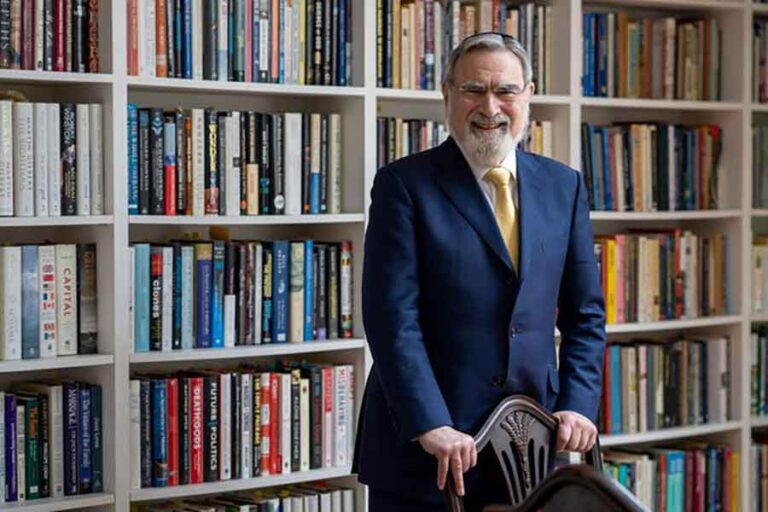Music has the power to uplift, to heal, and to connect us to something greater than ourselves. In Judaism, song has always played a central role in expressing emotion, connecting with the divine, and marking sacred moments. From the songs of victory and thanksgiving in the Bible to the melodies of prayer and lamentation in our liturgy, music is a language that speaks to the soul in ways that words alone cannot.
On this Shabbat Shirah, the Sabbath of Song, let us remember the power of music to touch our hearts, inspire our spirits, and bring us closer to God and to one another. Let us raise our voices in harmony and let our songs soar to the heavens, joining the chorus of creation in praising the Creator. And may we always find strength, solace, and joy in the music that surrounds us, lifting us up and carrying us through both the ordinary moments and the extraordinary challenges of life.
Regenerate
You understand what King David meant when he sang to God the words: âYou turned my grief into dance; You removed my sackcloth and clothed me with joy, that my heart may sing to You and not be silent.â United in song, you feel the strength of the human spirit no terror can destroy.
In his book, Musicophilia, the neurologist and writer Oliver Sacks (no relative, alas) tells the poignant story of Clive Wearing, an eminent musicologist who was struck by a devastating brain infection. The result was acute amnesia. He was unable to remember anything for more than a few seconds. As his wife Deborah put it, âIt was as if every waking moment was the first waking moment.â
Unable to thread experiences together, he was caught in an endless present that had no connection with anything that had gone before. One day his wife found him holding a chocolate in one hand and repeatedly covering and uncovering it with the other hand, saying each time, âLook, it’s new.â âItâs the same chocolateâ, she said. âNoâ, he replied, âLook. Itâs changed.â He had no ability to hold onto his memories at all. He lost his past. In a moment of self-awareness he said about himself, âI havenât heard anything, seen anything, touched anything, smelled anything. Itâs like being dead.â
Two things broke through his isolation. One was his love for his wife. The other was music. He could still sing, play the organ, and conduct a choir with all his old skill and verve. What was it about music, Oliver Sacks asked, that enabled him, while playing or conducting, to overcome his amnesia? He suggests that when we ârememberâ a melody, we recall one note at a time, yet each note relates to the whole. He quotes the philosopher of music, Victor Zuckerkandl, who wrote, âHearing a melody is hearing, having heard, and being about to hear, all at once. Every melody declares to us that the past can be there without being remembered, the future without being foreknown.â Music is a form of sensed continuity that can sometimes break through the most overpowering disconnections in our experience of time.
Faith is more like music than like science. Science analyses, music integrates. And as music connects note to note, so faith connects episode to episode, life to life, age to age in a timeless melody that breaks into time. God is the composer and librettist. We are each called on to be voices in the choir, singers of Godâs song. Faith teaches us to hear the music beneath the noise.
So music is a signal of transcendence. The philosopher and musician Roger Scruton writes that it is âan encounter with the pure subject, released from the world of objects, and moving in obedience to the laws of freedom alone.â He quotes Rilke:
Words still go softly out towards the unsayable
And music, always new, from palpitating stones
Builds in useless space its godly home.
The history of the Jewish spirit is written in its songs. The words do not change, but each generation needs its own melodies.
Our generation needs new songs so that we too can sing joyously to God as our ancestors did at that moment of transfiguration when they crossed the Red Sea and emerged, the other side, free at last. When the soul sings, the spirit soars.
[2] Kavam, literally âtheir line,â possibly meaning the reverberating string of a musical instrument.

- Is there a song that you feel a deep emotional or spiritual connection to?
- What are other sensory experiences in Judaism that also help us connect to God?
- If you could write a song about another moment in the Torah (one that does not yet have a song), which moment would you choose, and what would that tune sound like?
Regenerate means to restore or renew something to its original or better condition. It can refer to physical regeneration, such as healing a wound, or metaphorical regeneration, such as revitalizing a community or a relationship.
Source link

